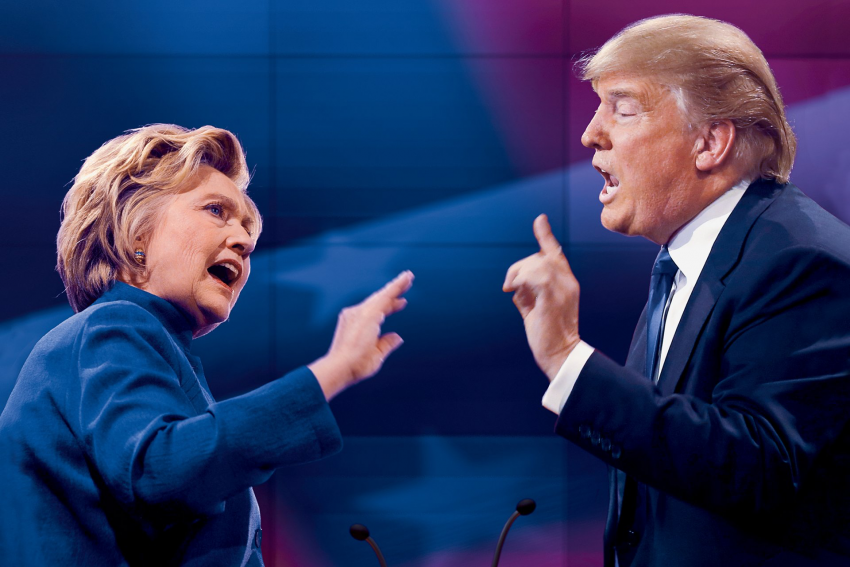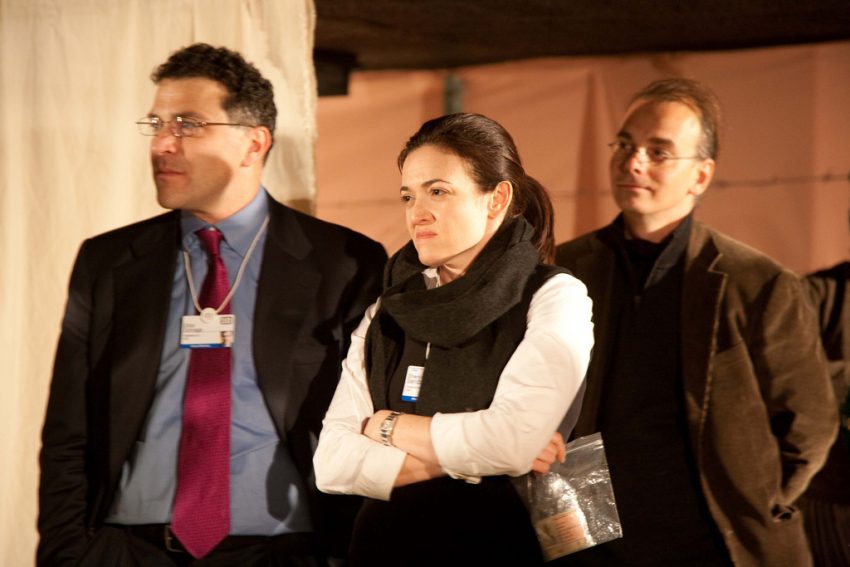Facebook has announced that 126 million of their American users may have encountered 80,000 published pieces of inauthentic, Kremlin-conceived content throughout the last two years (BBC, 2017).
 In the photo: Hilary Clinton and Donald Trump. Photo credit: The Atlantic
In the photo: Hilary Clinton and Donald Trump. Photo credit: The Atlantic
Accounts that can be linked to internet trolls in Russia have been reported to have used Facebook advertisement services to influence the judgement of American voters during the presidential election. Whilst they may not have made any explicit affirmations towards any particular party, the posts carried distinct, disruptive and contentious social and political sentiments that would find resonance within the many topics at the core of the presidential debate.
Virginia-raised Democrat, Senator Mark Warner, having been informed of this Russian-based online campaign, has made a statement claiming that the trolls are trying to ‘sow discontent in our country’. This may be true, however, Elliot Schrage, Vice President of global communications, marketing and public policy at Facebook, in a blog post titled ‘Hard Questions: Russian Ads Delivered to Congress’, seems to focus his attention not on the inflammatory nature of the content, but on its inauthenticity. The fact that the accounts creating the content did not identify themselves truthfully, and instead, purported to be American through and through, was the predominant violation of Facebook policy.
 In the photo: Elliot Schrage, Left. Photo Credit: Thomas Williams/Crossroads Foundation
In the photo: Elliot Schrage, Left. Photo Credit: Thomas Williams/Crossroads Foundation
One example of this was a Facebook group called ‘Heart of Texas’. Its group description simply read: ‘Texas’s the land protected by Lord’, and it began by posting fairly mild, unobjectionable and arguably clumsy content centred around the second largest state. However, it soon began spouting the message that a vote for ‘Killary Rotten Clinton’ would be a vote for ‘higher taxes to feed undocumented aliens…refugees, mosques, and terrorist attacks.’
This being said, many, including Mark Frankel, social media editor for BBC news, are stating that the claim that 126 million Americans may have seen the content up for discussion, is unrealistic. Mr Frankel points out, in ‘Russia, Facebook, the US election and when 126 million isn’t 126 million‘, that the shocking 126 million figure actually only refers to a post’s ‘reach’ (the number of news feeds it exists on), and does not give any indication as to how many people have actually seen and processed it’s contents. Whilst this is a very important point to make, the ease at which these trolls have created such a widespread misinformation campaign, and the impact this may have had on the 2016 US presidential election, should still be given serious consideration.



 In the photo: Hilary Clinton and Donald Trump. Photo credit: The Atlantic
In the photo: Hilary Clinton and Donald Trump. Photo credit: The Atlantic In the photo: Elliot Schrage, Left. Photo Credit: Thomas Williams/Crossroads Foundation
In the photo: Elliot Schrage, Left. Photo Credit: Thomas Williams/Crossroads Foundation In the photo: Facebook’s submission of findings on Russian ads to special counsel, Robert Mueller. Photo Credit: J. Scott Applewhite
In the photo: Facebook’s submission of findings on Russian ads to special counsel, Robert Mueller. Photo Credit: J. Scott Applewhite





